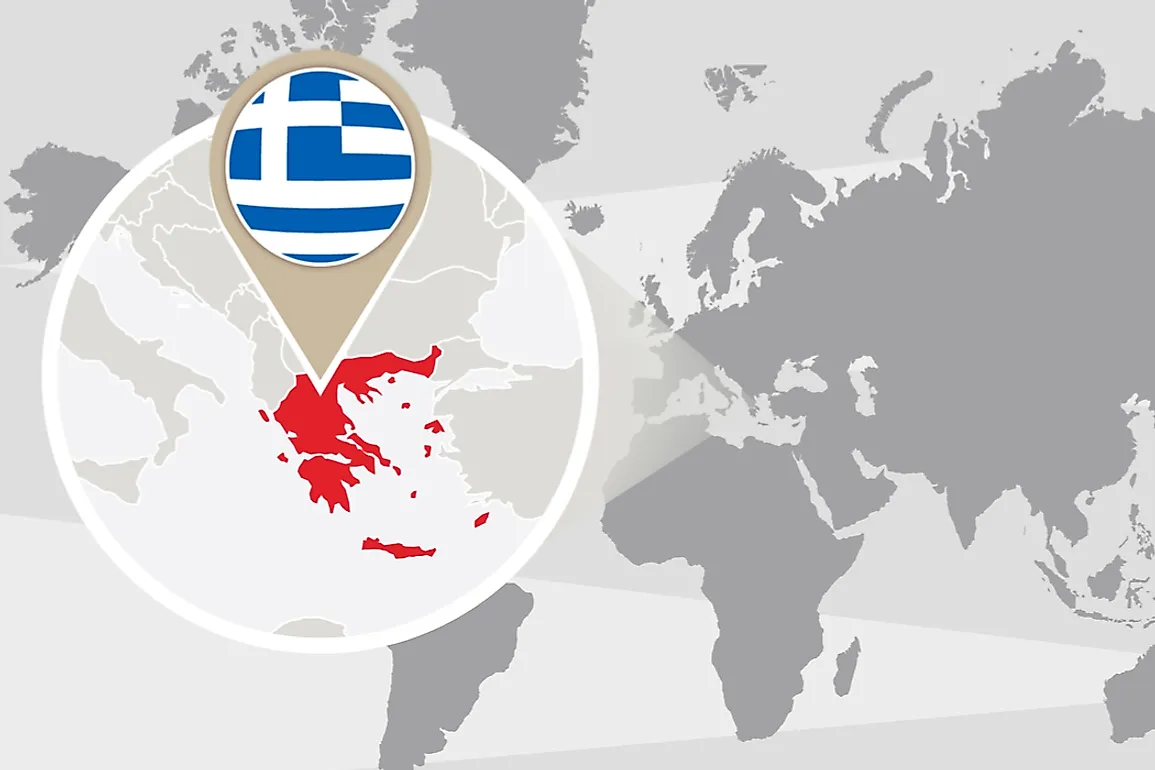What Continent is Greece In?

Greece is located in Europe. It is one of the Southern European countries. Greece is situated at the crossroads of three continents, namely Europe, Asia, and Africa. The country lies at the southern end of the Balkan Peninsula. Greece is bordered by Albania on the southwest, the Republic of Macedonia and Bulgaria to the south, and Turkey to the southeast. The Mediterranean Sea lies on the southern side of Greece. At 13,676 km long, Greece has the 11th longest coastline in the world and the longest coastline along the Mediterranean due to its indented shape and numerous islands.
Geography
Approximately 80% of Greece is mountainous and hilly. It is the most mountainous country in the entire continent of Europe. The highest mountain in the country, Mount Olympus, whose highest peak is 2918 meters, is believed to be a home of the Greek Gods. The Rhodope Range, another high altitude mountain, spreads across East Macedonia and Thrace. The Rhodope Ranges, located in North Eastern Greece are covered with vast and thick forests. The forests in Greece are homes to a number of endangered species such as the wild goat, roe deer, and brown bear. The country has numerous islands, with 227 of them being inhabited by humans. The number of islands in Greece range between 1500 and 6000. Western Greece is endowed with a number of lakes and wetlands. Vast plain regions are located in the Thessaly, Central Macedonia, and Thrace.
Climate
The climate of Greece can basically be described as a Mediterranean climate. The winters in Greece are usually mild and wet whereas the summers are hot and relatively dry. The Mediterranean climate is experienced in the coastal regions of the country. The areas experiencing the Mediterranean climate include Athens which is the capital city of the country, the Cyclades, Crete, Peloponnese, Dodecanese, and the Ionian Islands. The climate of the areas west of the Pindus Mountain is adversely affected by the mountain. The areas west of the Pindus are consistently exposed to a southwesterly system, which makes the areas relatively cooler and wetter than regions on the rain shadow regions, located on the eastern sides of the mountain. Heavy snowfalls and alpine climate are experienced in Northwestern regions of Greece. These are parts of Epirus, Central Greece, Thessaly and Western Macedonia. The inland regions of northern Greece in central Macedonia and East Macedonia and Thrace experience a temperate climate, with cold and dumpy winters. Snowfalls occur annually in the mountains and in the northern areas. Snowfalls are rare in low-lying areas.
Western Civilization
Greece is considered to be the home of many aspects of western civilization. Some of the aspects of western civilizations that are believed to have their origin in Greece include democracy, geometry, algebra, political science, western drama, Olympic Games and marathon, historiography and western literature. Great writers and philosophers in history were from Greece. These great personalities whose works hold a lot of importance today include Socrates, Plato, Aristotle, and Pythagoras.











